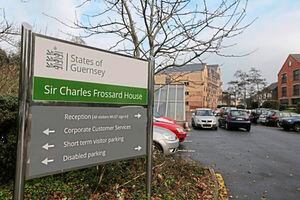Home Affairs rejects plan to cut £1m. from spending
POLITICIANS at Home Affairs have rejected a plan that would have stripped more than £1m. from its spending.

The committee is under pressure already for the lack of progress in making savings required this term.
Staff have drawn up a way of meeting the vast majority of the savings expected from the committee, and identified even greater efficiencies if there was the political will to press on with them, but this Medium Term Financial Plan, a copy of which has been obtained by the Guernsey Press, was not welcomed by the board.
Home Affairs needs to find recurring savings of £1.2m. by 2021, having delivered £4m. between 2012 and 2017, to help the States meet its pledge to taxpayers.
‘Assuming all initiatives can be realised then within the HAMTFP period the £1.2m. of savings are not quite achievable by £123,000, however the amount that can be saved represents 90% of the savings required to be found,’ the report says.
‘There is a further £789,000 of potential savings that may be achievable in the longer term and these will also need to be realised in order to meet the full value of the savings target.’
The report highlights a concern that Home Affairs is heavily reliant on working with others to make savings – 94% of the savings target is dependent on other committees or bodies.
The board had directed service heads to identify savings that ‘did not unduly impact on front line service’.
‘The time has now arrived where all of the savings that are felt to be deliverable without impacting on service delivery have been achieved and a more radical, change-orientated approach will be required to drive down costs without significantly impacting upon front line public safety services,’ the report says.
This was the focus of the PwC review of the committee commissioned by Policy & Resources.
‘Many of the findings had dependencies on other organisations or political committees that are outside of the control and influence of the Committee for Home Affairs.
‘Because of their change from traditional service delivery (e.g idea to amalgamate ambulance and fire services) and the need to have co-ordinated prioritisation agreement across committees, they could be classed as high risk and difficult to achieve,’ it says.
‘However, the States of Guernsey is going to have to take such risks and work together on these “difficult” initiatives in a realistic time-frame if it is to deliver the level of savings it has committed to.’
Home Affairs’ chief secretary, head of operations and all of the service heads took part in a workshop to consider how to make the savings.
Some of the opportunities are only achievable over several years, like a potential £623,000 through property rationalisation.
The report recommended that Home Affairs explores using a similar approach to that undertaken at Health & Social Care by performing target operating model work which would identify how a service is currently delivered, and what it should move to to be more efficient and effective.
Target operating models would be designed for offender management covering both the prison and probation; Fire & Rescue Service; Bailiwick Law Enforcement, back office administration functions; IT/digital and estate.
Staff identified a total of £2.26m. of savings that could be made without affecting front line services.
And that did not include five other initiatives that had not been fully explored yet – electronic monitoring of offenders; changing the administration of liquor licensing; amalgamating the committee’s business/administration and back office; the criminal justice review and a review of fixed penalties and de-criminalisation of parking tickets.
But once the £136,900 already delivered in 2017, £224,000 of savings that have been rejected and a remaining £788,500 of longer term savings are excluded, it left £1,112,7000.
‘With the appropriate engagement at political level, £600,000 of savings have the potential to move from longer term to within the HAMTFP period.’





